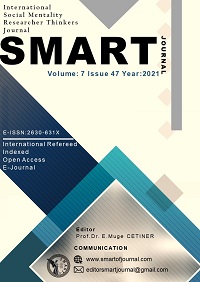Author :
Abstract
İşlendiği iddia edilen bir suç hakkında gerçeğin ortaya çıkarılması amacıyla 5271 sayılı Ceza Muhakemesi Kanununda soruşturma yapılması öngörülmüştür. Bilindiği üzere 5271 sayılı kanunda yargılama(muhakeme) iki aşamadan oluşur, Bunlar, soruşturma ve kovuşturmadır. 5271 sayılı kanunun ceza soruşturmasına ilişkin maddeleri incelendiğinde, soruşturma yapma yetkisinin Cumhuriyet savcısında olduğu görülmektedir. Bu durum kanunun hazırlanması sürecinde mecliste yapılan görüşmelerde, ‘soruşturmanın imparatoru Cumhuriyet savcısıdır’ şeklinde ifade edilmiştir. Ancak bazı istisnai durumlarda sulh ceza hakiminin de soruşturma yapma yetkisi 5271 sayılı kanunda belirtilmiştir. Kanunun kabul ettiği sistemde, sulh ceza hakiminin soruşturma yapabilmesi için birden fazla durumun bir arada bulunması şartı aranmıştır. 5271 sayılı Ceza Muhakemesi Kanununun 163. maddesinde düzenleme altına alınan bu durum için suçüstü halinin bulunması ile gecikmesinde sakınca bulunan halin yanı sıra meydana gelen olayda Cumhuriyet savcısına ulaşılamaması ya da Cumhuriyet savcısının iş gücünü aşan bir durumun olması şartı aranmıştır. Bu çalışmada soruşturma aşamasında sulh ceza hakiminin delil toplama yetkisi olup olmadığı ve bu bağlamda sorgu aşamasında tanık dinleme durumu tartışılacaktır.
Keywords
Abstract
Due to the emergence of the truth about a crime committed, an investigation procedure is envisaged in the Criminal Procedure No. 5271. As known, In the Law No. 5271, the trial consists of two stages which are the investigation and the prosecution. In the examination of the criminal investigation of the Law No. 5271, it is seen that the authority to conduct an examination rests with the public prosecutor. This situation was expressed as "the emperor of the investigation is the public prosecutor" in the procedures carried out in the preparation process of the law. However, it is stated in the Law no. 5271, that some exceptional peace judges also have investigative powers. In the system accepted by the Law no. 5271, the condition of having more than one situation together was sought in order for the magistrate to conduct an investigation. For this situation, which is regulated in Article 163 of the Criminal Procedure Law No. 5271, the condition of being in the act of flagrante delicto and the situation in which delay is inconvenient, as well as the inability to reach the Public Prosecutor in the event that occurred or a situation exceeding the workload of the Public Prosecutor were sought. Evaluation of this review should be questioned in order to evaluate and question jurisdiction.





